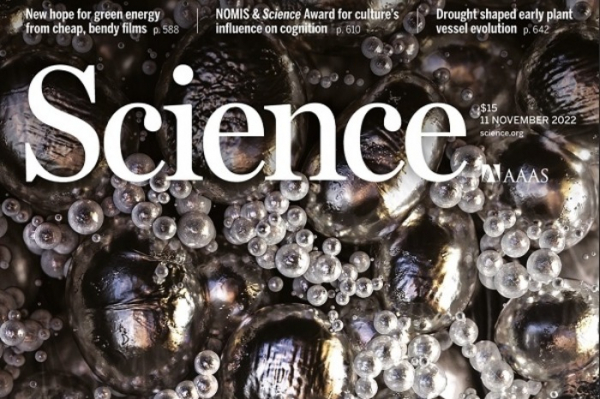South Korea's top science and technology university has invented the world's first printed circuit board (PCB) that bends and stretches like rubber but with no change in electrical resistance, a development expected to have a huge effect on devices worn by people.
The Korea Advanced Institute of Science and Technology, aka KAIST, on Monday said a research team led by new materials engineering professor Kang Ji-hyeong developed a method of making a liquid metal particle network to create a flexible PCB.
Liquid metal is metal in liquid form at room temperature like mercury that boasts high electrical conductivity and transformation capacity. Because of the structure's instability due to the nature of the liquid state, however, liquid metal has faced limits in being used in PCB wiring.
The team developed a technology using ultrasonic waves to combine liquid metal particles with highly elastic materials. Gallium, a metal that turns into liquid at 29.8 degrees Celsius, was closely bonded with highly elastic polyurethane particles using the waves.
The result was a PCB with low electrical resistance like that of copper but no change in properties even when stretched 10 times its original shape.
"We used a method based on ultrasonic waves to prevent leaks of liquid metal and thus achieved high bonding strength with an array of electronic components," Kang said.
A thesis summarizing the related content was published on Nov. 11 on the cover of the global academic journal Science.
Through cutting-edge technologies, the team connected electronic components and PCBs, produced elastic displays and sensors to gauge optical blood flow, and presented a range of applications.
Write to Jin-Won Kim at
jin1@hankyung.com



